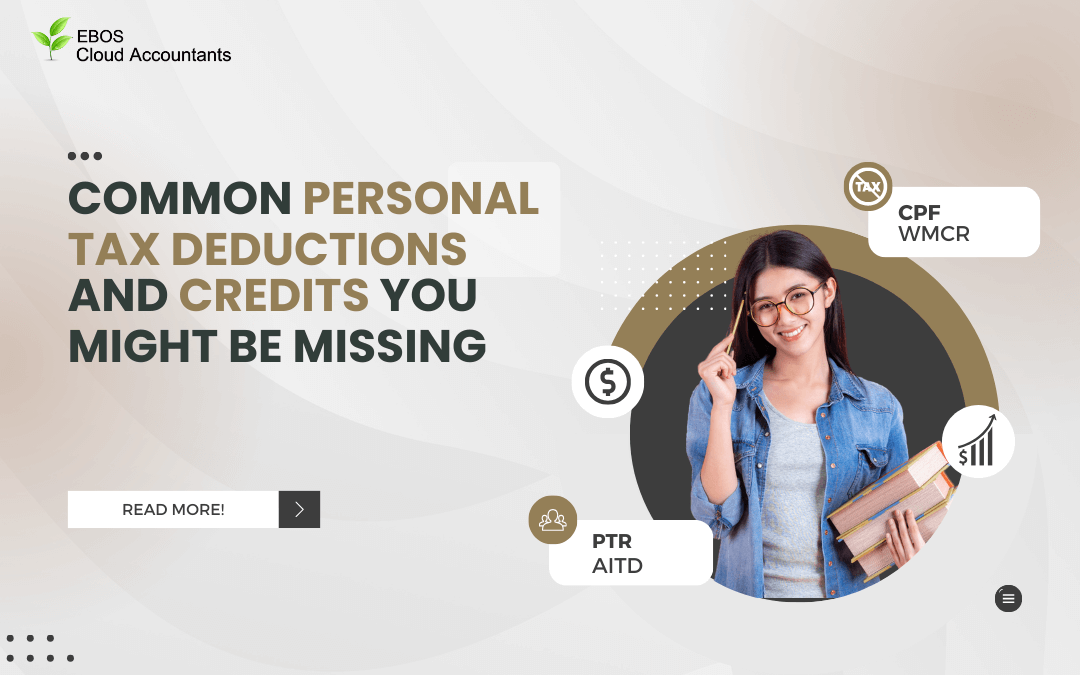Understanding your taxes isn’t just about filling out forms—it’s about how you maximize your income by minimizing what you owe. In Singapore, like many other countries, there are numerous deductions and credits that taxpayers often overlook.
Whether you’re a seasoned professional or new to managing your finances, knowing these things can make a significant impact on your financial management.
Maximizing Deductions
Claiming deductions is one of the easiest ways to lower your taxable income. In Singapore, taxpayers can claim a variety of expenses, including medical bills for themselves and their families, donations to designated institutions, and even course fees for skill development. These deductions can accumulate, potentially bringing you into a lower tax rate or lowering your total tax liability.
For example, if you’re a freelancer, deducting business expenses like home office bills or professional development courses might greatly reduce your taxable income. This proactive strategy not only lowers your tax burden, but it also promotes investment in your professional development.
Utilizing Tax Credits
Tax credits are another effective technique for improving your tax condition. Unlike deductions, which reduce your taxable income, credits directly reduce the amount of tax you pay.
In Singapore, this could include the Working Mother’s Child Relief (WMCR), which provides tax breaks to working moms, or the Parenthood Tax Rebate (PTR), which helps parents with small children.
Furthermore, Singapore offers specific credits aimed at encouraging certain behaviors, such as the Angel Investors Tax Deduction Scheme (AITD) for individuals investing in startups. Understanding and utilizing these credits can lead to substantial savings on your tax bill.
Planning for Retirement
Contributions to retirement accounts often come with tax benefits. In Singapore, contributing to the Central Provident Fund (CPF) not only helps save for retirement but also reduces taxable income. Individuals can claim tax relief on CPF contributions up to certain limits, making it a powerful tool for both retirement planning and tax management.
Timing Your Income
When you receive income can also impact your tax liability. For instance, freelancers or self-employed individuals might consider delaying invoices or income receipts until after the new tax year begins to defer taxes to the following year.
Similarly, employees might negotiate the timing of bonuses to minimize their tax burden if they anticipate entering a higher tax bracket in the current year.
Investment Strategies
Understanding your tax bracket is crucial when making investment decisions. In Singapore, capital gains from investments are generally not taxed, which can influence whether to invest in stocks, bonds, or other assets.
Tax-efficient investing strategies can enhance your after-tax returns and grow your wealth more effectively.
Final Thoughts
Understanding your tax deductions and credits is crucial for maximizing tax savings and retaining earnings. It involves planning and awareness, ensuring they align with your income and expenses, and can be beneficial for retirement savings, investment portfolio building, and daily financial management.
Therefore, staying informed about tax deductions and credits is crucial for smart financial management. Explore opportunities, consult with a tax advisor, and make informed decisions to support financial goals.
Contact EBOS Cloud Accountants today to explore more about insights and tips to optimize your finances. Let us help you stay informed and make smarter financial decisions.







